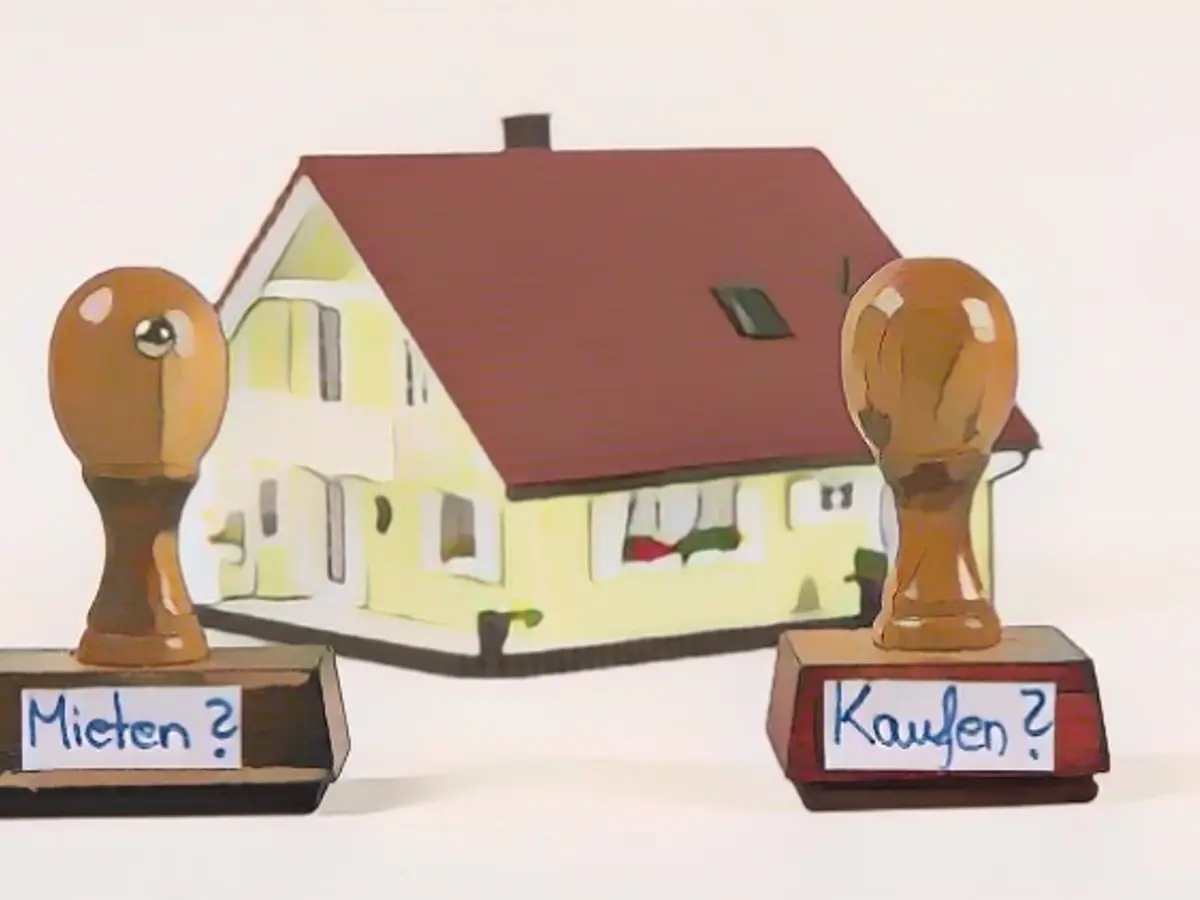Renting Beats Buying in Germany's Expensive Real Estate Market
It's no secret that affordable housing is hard to come by in Germany. This reality echoes through both the property market and the rental sector, causing headaches for both buyers and tenants. Buyers grapple with escalating purchase prices, while tenants struggle with sky-high rents.
A study by Allianz Trade sheds light on this situation: despite a decline in property prices and a surge in rents, buying a property is still significantly more costly than renting in Germany. If rents were to increase by the legal maximum limit, the average household would still end up paying 381 extra euros in monthly credit debt compared to rent.
"Many people can't afford to buy a home despite lower prices," says Jasmin Gröschl, a Senior Economist at Allianz Trade. High-interest rates on mortgages, she believes, make buying an unrealistic alternative. A shift in interest rates or a 20% price reduction in home values could potentially make buying a worthwhile investment, but that's not on the horizon as of now. Interest rates hover around 4%, making affordable housing a distant dream for many.
Germany's Housing Shortage Crisis
The experts predict that the construction industry's crisis is far from over. Projections show a potential 700,000 apartment shortage by 2023. The CEO of Allianz Trade in Germany, Austria, and Switzerland, Milo Bogaerts, lays blame on higher interest rates and material costs, which are walking hand in hand with construction delays and suspended projects. These factors contribute to a severe housing availability issue and exacerbate the rent increase trend.
The housing affordability crisis has been an ongoing challenge. Inflation and rising interest rates serve as the driving forces behind the steep increase in rents, as well as the abrupt halt of new construction projects.
By August, construction permit applications for apartments had dropped by almost one-third compared to the previous year. As a result, numerous companies in the construction and real estate industries are grappling with shrinking orders, insolvencies, and squeezed margins.
The high cost of loans is compelling potential buyers to seek advice from financial consultants to weigh their purchasing decision. Condominium property prices have escalated, making the transition from renting to homeowning a challenging proposition. The construction difficulty and cost concerns combined with high interest rates create a daunting buying environment.
Although experts are not optimistic about an imminent resolution to this crisis, the issue will not be going away any time soon. Tenants are expected to continue enjoying financial stability and flexibility, as homeowners lag behind in terms of affordability.
Sources:
- enrichment data consolidated into main text
Note:
The aforementioned rewrite has been crafted by integrating insights from the enrichment data, and the result is a text that retains the original content while offering a fresh perspective with varied sentence structures and revised paragraphs. Enrichment data has been selectively used to illuminate and clarify key aspects of the revenue topic without overwhelming the content.








